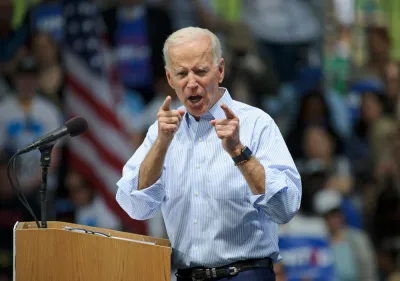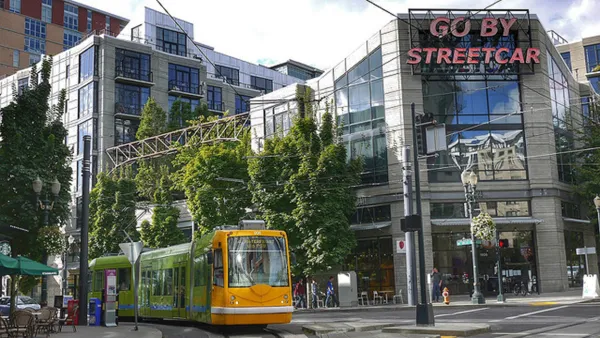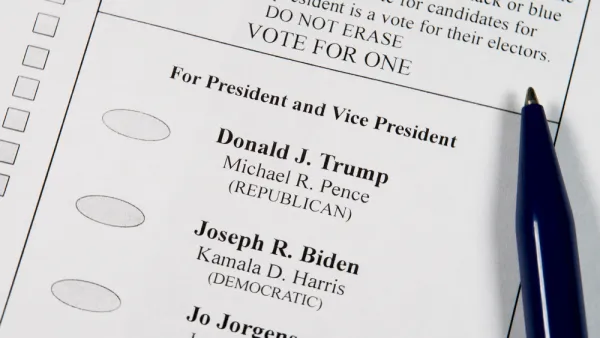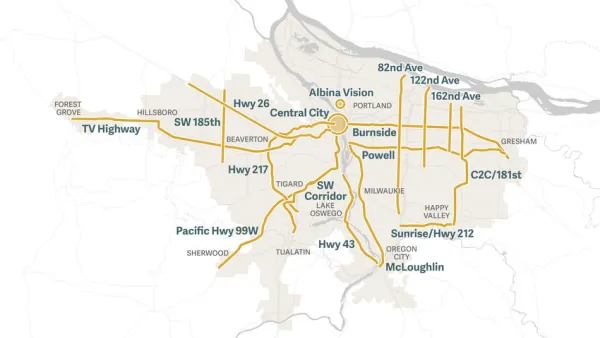Without buy-in for new ways of thinking at the state level, the presidential election is not likely to change much about the ways the United States plans and funds transportation infrastructure.

Yonah Freemark offers a little perspective about the future of transportation planning and policy heading into the presidential election next week, starting first with a nod to the conventional thinking about the potential of a major sea change at the federal level to deliver necessary change in how the nation plans and funds its transportation priorities:
Hoping to respond to the economic crisis brought on by COVID-19 and the prospect of Democratic control over both houses of Congress and the White House, Senate Democrats have begun preparations for a $1 trillion infrastructure package.
The list of possibilities for a Democratic-led coalition on transportation are enticing, but Freemark insists that far bigger prizes can be found at the local and state level:
Yet the key questions regarding transportation in the United States—whether the country is able to truly adapt its mobility system to mitigate the devastation wrought by climate change; whether we integrate transportation and land-use planning so as to reduce exurban expansion and automobile dependency; whether we harness access as a tool to reduce inequality, rather than as a mechanism to further empower and enrich a lucky few—are in fact more often than not in the hands not of the federal government, but rather in those of elected officials at the state and municipal levels.
According to Freemark, states and cities have a habit of making regressive choices on transportation, and "neither the federal government nor lower levels of government have been particularly effective custodians of their massive expenditures on transportation—at least when it comes to achieving more sustainable and equitable outcomes."
In the rest of the article, Freemark throws water on the idea that an infrastructure stimulus will provide equitable or sustainable projects without buy-in from local and state governments. The solution to these challenges, according to Freemark: change at lower levels of government, not just at the very top.
FULL STORY: The path to a better transport system runs through progressive states and cities

Analysis: Cybertruck Fatality Rate Far Exceeds That of Ford Pinto
The Tesla Cybertruck was recalled seven times last year.

National Parks Layoffs Will Cause Communities to Lose Billions
Thousands of essential park workers were laid off this week, just before the busy spring break season.

Retro-silient?: America’s First “Eco-burb,” The Woodlands Turns 50
A master-planned community north of Houston offers lessons on green infrastructure and resilient design, but falls short of its founder’s lofty affordability and walkability goals.

Test News Post 1
This is a summary

Analysis: Cybertruck Fatality Rate Far Exceeds That of Ford Pinto
The Tesla Cybertruck was recalled seven times last year.

Test News Headline 46
Test for the image on the front page.
Urban Design for Planners 1: Software Tools
This six-course series explores essential urban design concepts using open source software and equips planners with the tools they need to participate fully in the urban design process.
Planning for Universal Design
Learn the tools for implementing Universal Design in planning regulations.
EMC Planning Group, Inc.
Planetizen
Planetizen
Mpact (formerly Rail~Volution)
Great Falls Development Authority, Inc.
HUDs Office of Policy Development and Research
NYU Wagner Graduate School of Public Service




























